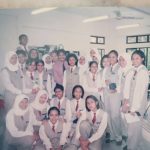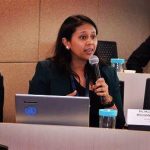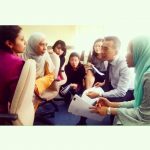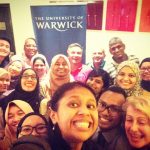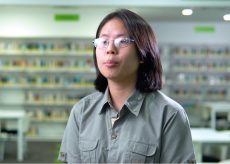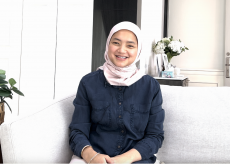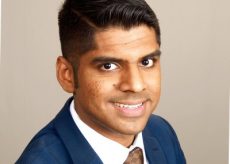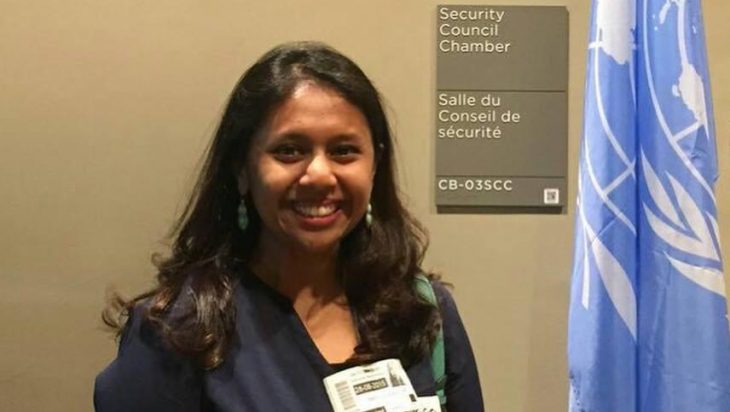
Be the first to get latest stories.
Follow Cemerlang's Telegram channel.
1st #GreatHeights Series -An Interview With Marisa Aisha Mohamed Razeek, Class of 2003
Norfarah Mohamad, Head of KYSER Content of the Cemerlang Editorial Team had a chance to interview one of the most inspiring International Economic and Trade Lawyer, the ever high flyer Marisa Aisha Mohamed Razeek, class or 2003. She is currently a lawyer for the ASEAN Secretariat, handling agreements that falls under the ASEAN Economic Community (ASEC).
Marisa got a scholarship from Bank Negara Malaysia (BNM) for A-levels, university and Bar School after Kolej Yayasan Saad (KYS) years and went to Kolej Tuanku Jaafar for A-levels, the University of Warwick for law school (LL.B) and then to the College of Law for Bar School. After that, she continued her LL.M in Professional Legal Practice at the College of Law, and finished her dissertation whilst chambering in Zul Rafique and Partners. She later joined BNM as trade negotiator before taking her current post in ASEC.
Head Girl Class of 2003
She had always enjoyed her years in Kolej Yayasan Saad (KYS). Talking about her life in KYS, her years there helped to build the right characters for her to become an influential international trade negotiator today.
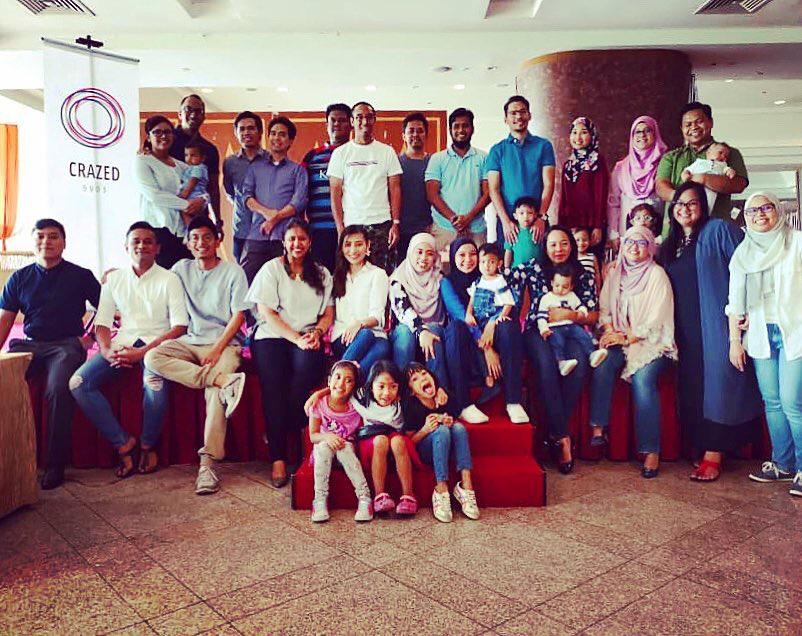
Let’s talk about your KYS days. So, what did you study in KYS? Was it your decision?
I was in the Pure Science stream. And, haha! Yes. I chose to study chemistry, biology and physics, even though I was planning a career in the legal sphere. I loved it! I think we almost blew up a part of the chemistry lab once.
Who helped you the most while you were studying in KYS? How?
Our parents away from home – the teachers. And by teachers, I do mean everyone we have had the opportunity to learn from in KYS. We had/have brilliant ones, who allowed us to make mistakes and learn from them; who taught us how to stand up for what we want and what we believed in; who became our friends. I think the teachers and the structure of learning and growing up in KYS made it conducive for personal development. You’re encouraged to explore, take on incremental responsibilities, and generally grow up to become some useful to the world.
What did you love most about your KYS experience?
The people. I didn’t realise it then, but now, I feel that there is a bond you have with your fellow KYSERs that is a bit different. Sure, you might not see each other that often, but the camaraderie is something else. Maybe it’s a boarding school thing, but with KYS, it truly feels like family. You feel like at the end of the day, those nerds that you lived with for five years, got your back.
In what way have your experiences helped you after graduating from KYS?
I think KYS made us grow up faster than we (probably) intended to. Think about it – our parents chucked us in the middle of nowhere to (mostly) fend for ourselves. We learnt how to take charge and delegate and to organise and cooperate. We had to be responsible and accountable for all our actions. And since we were there, together, on our own, we had to quickly learn how to be self-reliant and realise the importance of being selfless.
How did the posts you held in KYS impact your character development?
The most challenging one was being Head Girl in 2003. When I ran for the position, it was on a list of things I felt I needed to achieve. But after actually getting the job, I started to feel responsible, accountable, even protective over the students then. Though, I think that sense of responsibility over 300+ students, rightly or wrongly, manifested itself in different ways. When something bad happened, especially if it was one of the girls, I would think that it was my fault for not doing enough prevent the situation from happening. At the time, I felt a lot of pressure to not make any mistakes or wrong decisions, to the point that I would overthink many decisions I’ve made. Nonetheless, that was the base. Over time, I’ve learnt to draw the line between being responsible and being accountable for my, and other people’s, actions.
What notable awards have you won when you were studying in KYS? How did they help with your university applications?
Gosh, this is a while back and to be completely honest, I am a little fuzzy about the details. And really, I think only the admissions unit in the universities will be best suited to answer this question. If I had to hazard a guess, any award obtained will be an indication or an assumption of a skill that you have mastered. For example, if you received an award as “best debater”, the assumption is that you have excellent oratory skills, commendable ability to structure arguments, and calm under pressure. In my experience, interesting extra-curricular activities, coupled with a well-written personal statement can help you get into the universities you are aiming for. In my personal statement, I wrote that I wanted to be Spider-Man – and I got into law school!
"It took persistence, actual blood, sweat and tears to be part of a national team that concluded a major treaty!"
Representing Malaysia in international trade and negotiations sounds like an glamorous job but with it, comes great responsibilities.
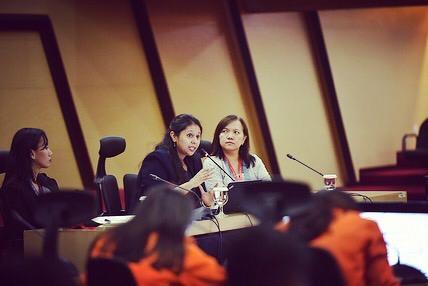
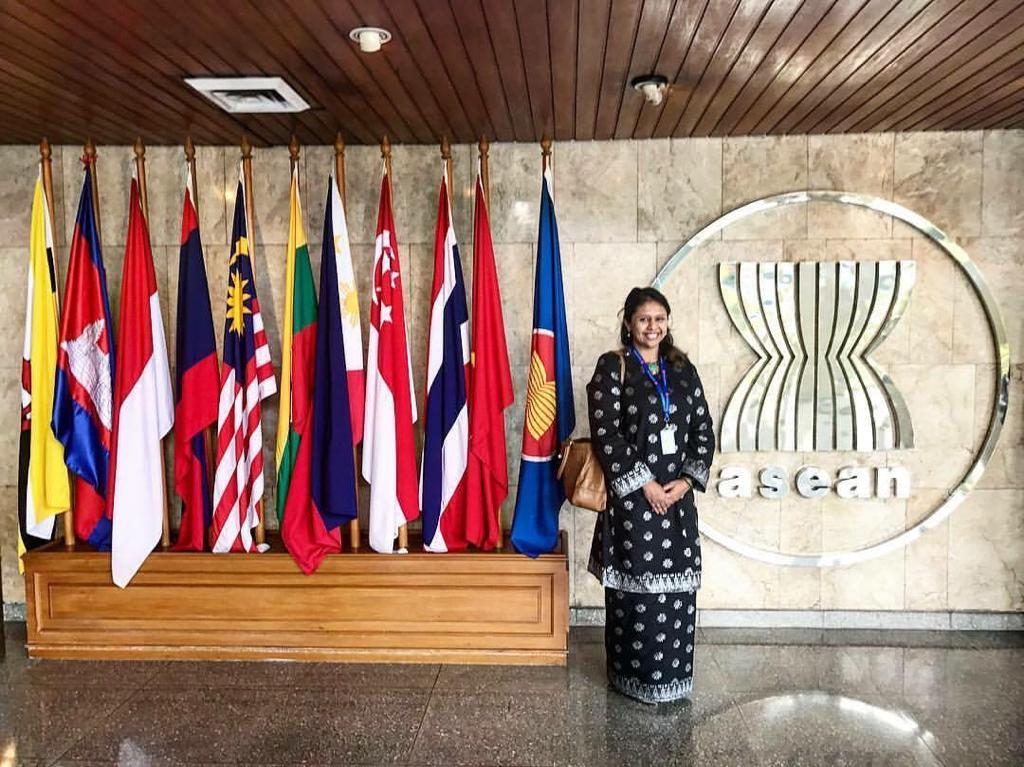
Was it tough transitioning from one job to another?
Personally, I didn’t think so. Although there were tough times, I thought the movement I made from one position to another was quite natural. I was very grateful for all of the experience that I have amassed so far. I feel that even in the toughest times, I have managed to pick up skills, be more resilient and resourceful to manage and overcome the challenges that have come my way.
In terms of either physical, mental or spiritual, did you experience any growth?
I would have loved to say I’ve not physically experienced any growth from my KYS days, but that would be a straight up lie. Haha! Though, I can jog a steady 10km – and running was something I loathed doing when I was in KYS.
I would link “mental or spiritual growth” to emotional development. The most important thing that I’ve realised and learnt to accept is that you cannot control how you feel, but you can always control how you react.
What is your greatest achievement in the job that you’re doing now? What did it take to achieve it?
It took persistence, actual blood, sweat and tears to be part of a national team that concluded a major treaty. Though, a few years ago, I found myself measuring achievements by skills gained rather that any particular output. This is because I find skills transferable from one project to another. A major achievement for me is fine tuning my time management skills, not wearing my heart on my professional sleeve, and being kind to myself. Just like concluding a major treaty, obtaining these skills took persistence, blood, sweat and a lot of tears; and it will continue to do so.
Last but not least...
Being a leader means knowing the right way to come to a decision that people will be happy and compelled to follow. Allow yourself to evolve. Take each stage of your life as a checkpoint to reevaluate what drives you, what makes you happy and what will make the world a better place. Just keep your family (and the Earth!) in mind in every choice you make.
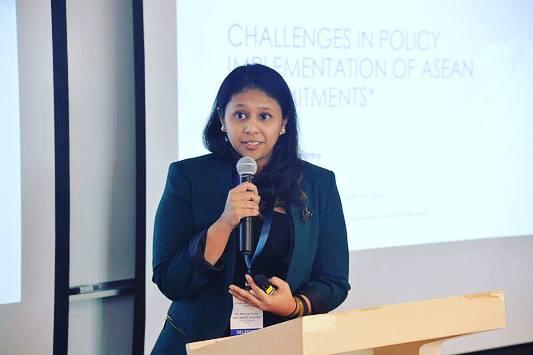
What would you have done differently if you were still a KYS student?
I would spend my end-year holidays interning somewhere interesting, rather than preparing notes for next year’s syllabus and doing scrapbooks about what I wanted to be when I was 13, and suffer the consequences.
What were your aspirations for the future when you were still studying in KYS? Did you achieve them? How?
Honestly, I had vague ambitions. I knew I wanted to be a lawyer and I wanted to make a difference. But I also realised that ambitions evolve as you experience the world. You slowly find your niche and where you can make a difference for the better. To strictly answer this question, yes, I achieved my ambition to become a lawyer by working hard and focusing on the goal.
What is your ultimate goal in life? How do you aspire to achieve them? How close are you to achieving them?
In the wise-words of Lin-Manuel Miranda, “I wanna build something that’s gonna outlive me.” As I’ve said earlier. Goals will change or evolve as you experience the world. At one point in time, I thought reaching a particular position in an organisation would be my ultimate aim. But climate change is threatening our very existence on this planet. Now, the aim is to do my part to build a sustainable world that is better than before. In my spare time, I have embarked on a project that aims to divert 95% of trash from landfills and turn them into reuseable ash. We’re getting traction, but it is difficult to disrupt an established system. But, we’re not giving up! Imagine reclaiming landfills and turning them into green lungs!
As Head Girl 2003, what advice would you give to future applicants?
I might not be the best person to dish out advice for today’s applicants! I’m sure dynamics and situations have changed since 2003! Perhaps one reminder in that when you apply to be Head Girl or Head Boy, it comes with a whole lot of emotional responsibilities as well. A helpful tip would be to always take a breather, and if necessary, consult your “generals” on how to solve the problems. Being a leader doesn’t mean you make all the decisions and people have to follow. Being a leader means knowing the right way to come to a decision that people will be happy and compelled to follow.
Do you have any advice for the KYS students of this decade?
You guys have so much more at your finger tips now! Use that power wisely! Do internships, take on a project outside KYS, write a book, direct a movie! You can practically do anything you want. Allow yourself to evolve. Take each stage of your life as a checkpoint to reevaluate what drives you, what makes you happy and what will make the world a better place. Just keep your family (and the Earth!) in mind in every choice you make, okay guys?
Publish your article /video / content by sending it to [email protected]

